
By Appo Jabarian
USA Armenian Life Magazine
In February, Deputy Chief of Staff to the President of Armenia Vigen Sargsyan visited the Center for Strategic and International Studies (CSIS) in Washington, DC, to discuss the prospects and “potential benefits of normalization of relations between Turkey and Armenia,” according to the CSIS website.
During the question-and-answer session, in response to a question from Mr. Kazari of the Embassy of the Republic of Azerbaijan in Washington, DC, Mr. Sargsyan astonishingly said the following regarding the current Armenian-Azeri border: “All those important parts of the borders can be de-blocked. Our immediate borders between Armenia and Azerbaijan have nothing to do with the territories around Nagorno Karabagh.”
He continued: “Now as far as the occupation, our concerns are very much in favor [of] … what is important [is that] the president of Armenia [Serzh Sargsyan], who was the Minister of Defense of these territories, has always stated that he does not think of these territories as historic Armenian lands. He always stated that these territories have to return to Azerbaijan when the settlement of Nagorno-Karabagh is found.”
In reference to the controversial former Foreign Minister of Armenia, Mr. V. Sargsyan added: “Vardan Oskanyan’s reference to the word of ‘occupied territories’ [ignited] big internal discussions on what he has to do” to mitigate the negative outcome in the mass media.
As many readers recall, in September 2007, I had called for Mr. Oskanyan’s resignation or dismissal as Foreign Minister of Armenia. The article was disseminated through several news outlets around the globe.
In that article, I wrote: “Oskanyan has been Foreign Minister for too long, without having achieved any substantial gains for Armenia. Furthermore, Armenia squandered away many valuable opportunities for diplomatic gains in the international arena and even sustained self-inflicted damages thanks to Mr. Oskanyan’s mishandling of several cases at the United Nations and elsewhere. It is absurd that the foreign minister … mislabels the liberated Armenian lands as ‘occupied’ territories. … Isn’t it time for a change? The political landscape is shifting. We need more proactive leaders in Armenia.”
Is Mr. V. Sargsyan aware that the territories surrounding mountainous Artsakh have always been part of Armenia?
The now-liberated territories around Artsakh are part of the entire Region of Artsakh that extends to the Kura River, just east of the border between the Republic of Artsakh and the former Soviet Socialist Republic of Azerbaijan.
As Mr. V. Sargsyan should know, the Artsakh Region along with Nakhitchevan was arbitrarily carved out of the 1918-1920 independent Republic of Armenia. These regions were part of Armenia up until its takeover by the Soviet occupation forces in November 1920.
In 1921, soon after Sovietization, Armenia was subjected to the process of “Stalinization” when the infamous Soviet Dictator Josef Stalin “gifted” the entire Region of Artsakh with its lowlands and highlands; and Nakhitchevan to the then newly created Soviet Republic of Azerbaijan.
Presently, the Republic of Azerbaijan continues to illegally occupy 1) The northern Artsakh district of Shahumian; and Gandzak (Kirovabad); 2) the outlying lowlands that extend to Kura River; and 3) Nakhitchevan.
One wonders if Pres. Serzh Sargsyan is aware of his Deputy Chief of Staff V. Sargsyan’s latest serious international blunder (to say the least), undermining Armenia’s national security interests during a lecture in Washington, DC.
By using the misleading term “occupation,” Mr. V. Sargsyan should feel ashamed for having committed an act of blasphemy against the memory of thousands of innocent Armenian victims of the 1988 Azeri pogroms in Baku, Sumgait and Gandzak/Kirovabad and their deportation staged by Azerbaijan.
Mr. V. Sargsyan also disrespected the memory of countless freedom fighters that liberated Artsakh from the Azeri yoke during the Artsakh Liberation War (1991-1994) which was in response to the 1988 Azeri crimes against defenseless Armenians.
While still on the job, Mr. Sargsyan should steer away from or remain unswayed by the influence of neo-con enablers in various academic/diplomatic circles, such as the one inside the Fletcher School of Diplomacy which he graduated from.
Interestingly, during recent years, the Fletcher School of Diplomacy has been serving as the farming grounds for spineless Armenian diplomats, among them former Foreign Minister Oskanyan.
To President Serzh Sargsyan’s credit, as soon as he took the helm of Armenia’s leadership in 2008, he decommissioned Foreign Minister Oskanyan because of his dismal performance.
It would only be logical, if Pres. Sargsyan were to deal with Mr. V. Sargsyan, the way he dealt with Mr. Oskanyan. May be, Mr. V. Sargsyan should not even wait – he should present his letter of resignation sooner rather than later.
To listen to Mr. V. Sargsyan’s comments at CSIS, please fast-forward to the last 5 minutes of his remarks, by using the following link: ).
Audio file icon is located under the heading: “Audio: The Prospects for Armenia-Turkey Normalization: The View from Yerevan”
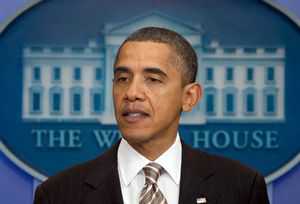

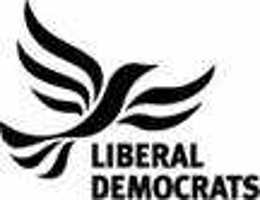



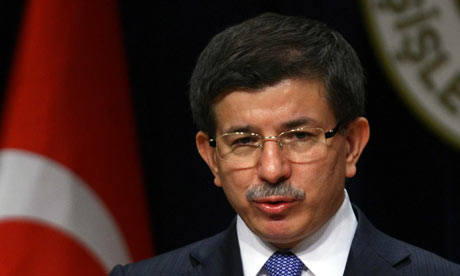 Foreign minister Ahmet Davutoglu says describing the 1915 Armenian killings as genocide is an insult to Turkey’s ‘honour’. Photograph: Adem Altan/AFP/Getty Images
Foreign minister Ahmet Davutoglu says describing the 1915 Armenian killings as genocide is an insult to Turkey’s ‘honour’. Photograph: Adem Altan/AFP/Getty Images
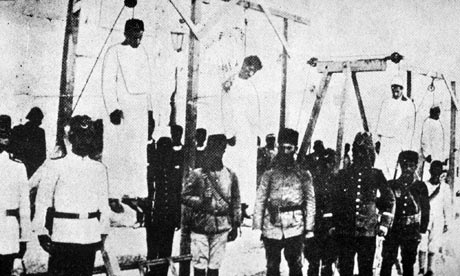


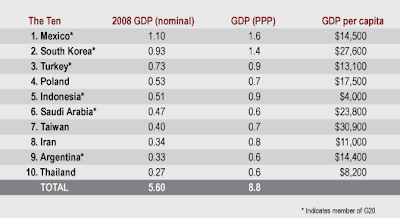 Ten economies are becoming the new locomotive for the global economy By Martin Walker Senior Director of A.T. Kearney’s Global Business Policy Council.
Ten economies are becoming the new locomotive for the global economy By Martin Walker Senior Director of A.T. Kearney’s Global Business Policy Council.